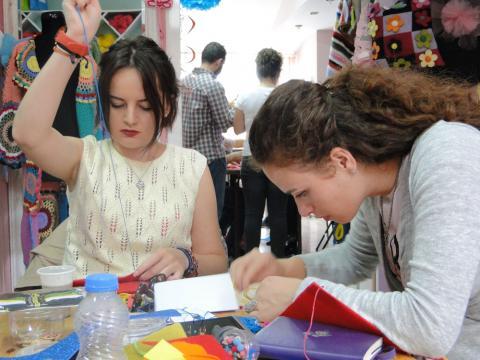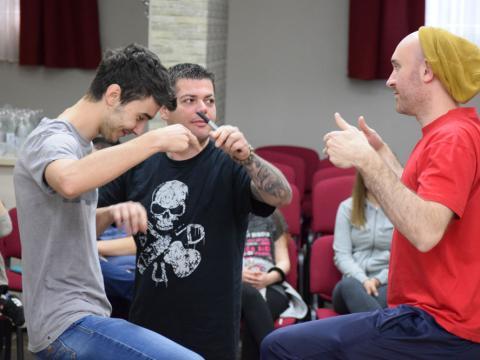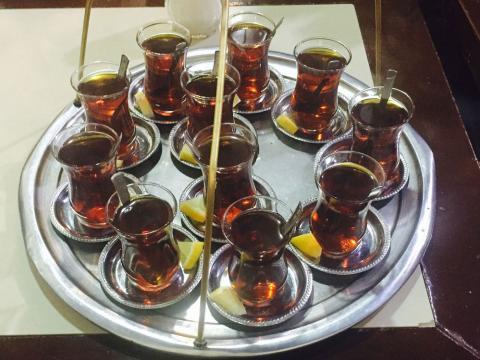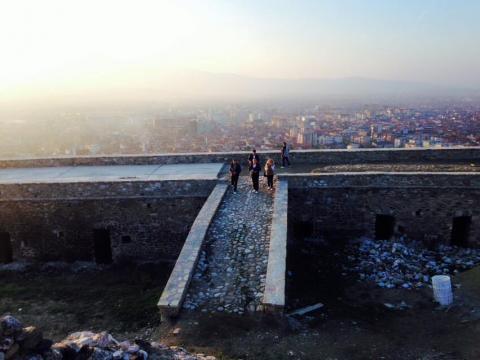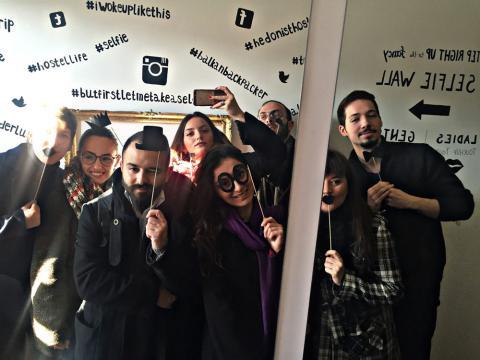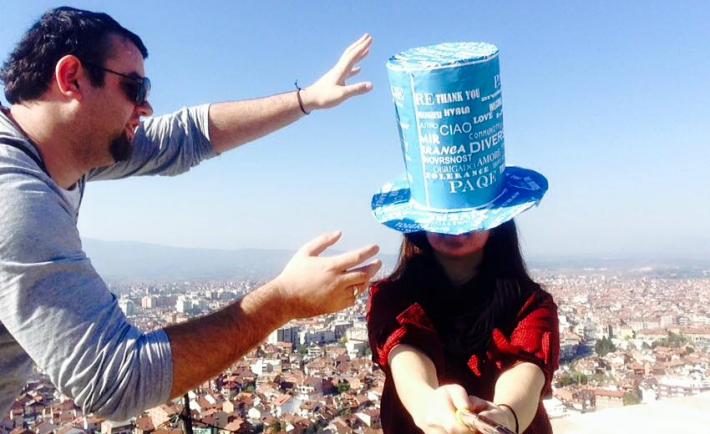
The emerging leaders group 'Diverse Your-Selfie' used this symbol of a hat to promote diversity by taking selfies and posting them to social media networks.
NDI Kosovo recently concluded a more than two-year long program on Conflict Mitigation, aiming -- through its own activities and with the support of its partners -- to cultivate relationships across the country’s divisions, thus easing ethnic tensions in Kosovo. Through the program, more than 600 Kosovars engaged in diverse dynamics across ethnic lines, overcoming their possible post-war fears, prejudices and mistrust, thus establishing rewarding collaboration.
Nine years after Kosovo’s declaration of independence, the burden of the past still exists, undealt-with and dividing. Several attempts to deal with the heavy load of the past, both from civil society and state institutions, have been made so far. The results have been poor, partially because these attempts did not do enough to reflect the needs of Kosovar society.
In a fragile, conflict-affected society like Kosovo, political leaders can easily mobilize their supporters for a cause. Any cause. Particularly a political one, painted with our colors, against theirs. Political, thus ethnic, relations have recently deteriorated, with an outburst of war threats between Pristina and Belgrade. The "us vs. them" mindset, lately louder in many parts of the world, has a long history in the Western Balkans. As a consequence, more conflict is emerging based on ideology, religion, class -- differences that have existed for centuries but are increasingly (ab)used to divide people and fuel conflict.
So, what did we achieve? What changed? And, dare we ask, what did we learn?
First and foremost, we decided to take an ambitious approach and see if we can transform the conflict, instead of merely mitigating it. This meant taking on a learning-by-doing process of designing a conflict transformation approach that could be complementary to NDI’s existing methodologies.
We knew from the very beginning that ethnic identities would be consciously strengthened if put in a setting that challenges them. Therefore, instead of pushing for “neutral” space, we decided to create an identity-friendly environment, where these identities are recognised, and faced. Participants explored the richness of their own identities by identifying, even nurturing, common identity threads with “the other.” This way, the common geographic and experience-based identities include the ethnic ones in a shared narrative, without putting an etiquette on them as "destructive" and "divisive." The understanding of "us" becomes wider, and leaves none as "them." By doing so, people come to accept the torment of "the other" as their own, and the wellbeing of "the other" as their own.
Looking at the conflict from an "all of us" perspective broadens our understanding of the situation and makes our own engagement in conflict much more complex, but also much more fun, and surely less destructive. Participants came to recognize their own selves in those they had been seeing as "the enemy" until recently. The "enemy images" are broken, and the "real enemy" -- the context that pushes people into extreme positions and actions -- is identified.
Understanding this, and with the support of NDI, participants mobilized themselves into smaller group activities around common issues or interests, all the while holding on to the group dynamics they initiated, while working to meet needs of vulnerable individuals in society. This way, a dozen or so smaller groups of individuals with diverse backgrounds raised funds on their own to organize social activities with elders, orphans, single mothers, and more. Some initiated a cross-ethnic theater performances; others developed an online language platform to help Kosovar Albanians learn Serbian, and vice versa, as inability to understand each other’s languages perpetuates divisions; and still other participants formalized their engagement around supporting those in need through a new foundation or civil society organization.
Looking at this dynamic process within NDI’s Conflict Transformation Program, we track inspiring personal journeys, not only of participants, but of the staff as well, to understand more of our own selves and the environment in which we function.
We came to learn that, by recognising the marginalised ones living beside us, and by listening to them we understand ourselves and remember our own past. And above all, we experience that incredible feeling of serving.
NDI's Conflict Mitigation program in Kosovo was funded by USAID.

